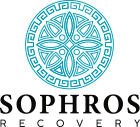Substance abuse recovery is a deeply personal journey, but it doesn’t have to be a solitary one. Group therapy at Sophros Recovery provides a supportive environment where individuals can share experiences, learn from others, and develop the skills necessary for long-term sobriety. If you’re considering different types of therapy for addiction recovery, understanding group therapy and its benefits can help you make an informed decision.
What Is Group Therapy?
Group therapy is a structured form of psychotherapy that involves multiple participants working together under the guidance of a licensed therapist. These sessions provide a comfortable and supportive space for individuals struggling with addiction to openly discuss their challenges, progress, and coping strategies.
Unlike individual therapy, group therapy allows participants to gain insights from others who share similar experiences. It fosters community, accountability, and encouragement—essential elements in the recovery process. Group addiction therapy in Florida and other states is often included in comprehensive treatment plans, as it helps address both the psychological and behavioral aspects of addiction.
Is Group Therapy Effective?
Group therapy has proven to be highly effective in substance abuse treatment. Studies indicate that individuals who engage in group substance abuse activities experience lower relapse rates and higher long-term recovery success compared to those who undergo treatment alone. Participating provides a sense of belonging, reduces feelings of isolation, and reinforces positive behaviors. The diversity of perspectives within a group setting encourages participants to view their struggles in new ways and adopt effective coping mechanisms. Additionally, peer support can be incredibly motivating, helping individuals stay committed to their recovery journey.
Effective Substance Abuse Group Therapy Activities for Recovery
The success of group therapy often depends on the activities involved. Here are some of the most effective substance abuse group therapy activities used in recovery programs:
1. Cognitive Behavioral Therapy (CBT) Exercises
Cognitive behavioral group sessions help individuals identify negative thought patterns and develop healthier coping strategies. Activities may include role-playing scenarios, journaling exercises, and guided discussions that challenge irrational beliefs and reinforce positive thinking.
2. Relapse Prevention Planning
This activity involves discussing potential triggers and developing personalized strategies to avoid relapse. Participants share experiences and brainstorm effective ways to handle high-risk situations.
3. Psychoeducation Workshops
Group members learn about the science of addiction, its effects on the brain, and effective recovery strategies. Educating individuals about addiction helps them make informed decisions about their recovery.
4. Art and Music Therapy
Creative expression can be a powerful tool in recovery. Art therapy allows individuals to process emotions nonverbally, while music therapy can provide emotional release and relaxation. These activities encourage self-expression and help reduce stress.
5. Mindfulness and Meditation Exercises
Many treatment programs incorporate mindfulness activities such as guided meditation, breathing exercises, and body scans. These practices help individuals manage cravings, reduce anxiety, and improve emotional regulation.
6. Sharing Personal Stories
Storytelling fosters a sense of connection and helps individuals process their experiences. Hearing how others have overcome challenges can be inspiring and provide hope for those still struggling.
7. Sober Recreational Activities
Engaging in healthy recreational activities like group outings, sports, or yoga can reinforce a substance-free lifestyle. These activities promote social bonding and demonstrate that fun and fulfillment are possible without drugs or alcohol.
8. 12-Step Meetings and Peer Support Groups
Many recovery programs incorporate 12-step groups like Alcoholics Anonymous (AA) or Narcotics Anonymous (NA) as part of their group therapy. These meetings provide ongoing peer support and a structured path toward long-term sobriety.
9. Role-Playing and Communication Skills Training
Learning how to handle difficult conversations, set boundaries, and refuse peer pressure are essential skills in recovery. Role-playing exercises help individuals practice these skills in a supportive setting.
10. Gratitude and Affirmation Exercises
Practicing gratitude and using affirmations can help shift negative mindsets and build self-confidence. Many groups engage in activities like writing daily gratitude lists or sharing affirmations with the group.
If you or a loved one need substance abuse treatment in Florida, there are many options available. Treatment programs often combine individual and group therapy, holistic approaches, and medical support to address addiction recovery. Group therapy in Florida offers community and structure to build a strong foundation for lasting sobriety. By joining group recovery activities, you can gain the skills and support needed for long-term success.
Embrace Group Therapy at Sophros Recovery Jacksonville
Group therapy is a valuable tool in substance abuse recovery, providing emotional support, shared experiences, and structured activities that promote healing. Engaging in effective group substance abuse activities can strengthen your coping skills and increase your chances of maintaining sobriety. Whether you are just beginning your recovery journey or looking for additional support, participating in group therapy at Sophros Recovery can be a transformative step toward a healthier, addiction-free life. Call 866.374.0541 or contact us online for more information about your options today.







